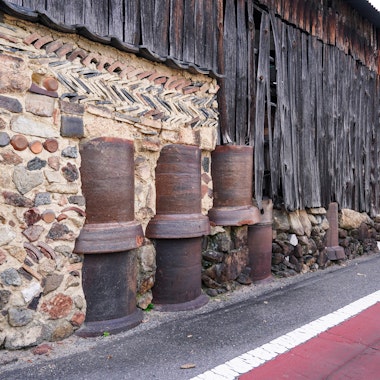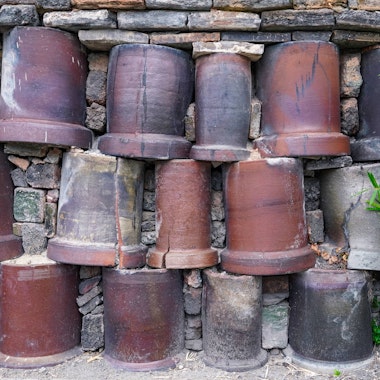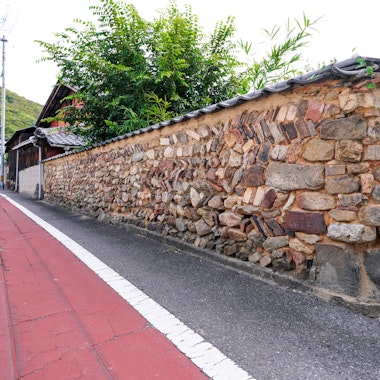


Imbe is a traditional pottery village in Bizen City, Okayama Prefecture, renowned as the birthplace of Bizen-yaki, one of Japan's six ancient pottery styles. This ceramic tradition has flourished for over 1,000 years, making it one of the oldest continuously operating pottery centers in Japan. The village's unique reddish clay, sourced locally from the Yoshii River basin, combined with wood-firing techniques passed down through generations, produces the distinctive unglazed ceramics that characterize authentic Bizen pottery.
The cultural significance of Imbe extends beyond its pottery heritage. The village was designated as a Traditional Crafts Production Area by the Japanese government, recognizing its role in preserving ancient ceramic techniques. Many workshops operate as family businesses, with some pottery lineages tracing back over 30 generations. The firing process, which takes place in massive noborigama (climbing kilns) and lasts up to 10 days, creates natural ash glazing and flame patterns that make each piece unique.
Visitors can explore numerous pottery studios and galleries lining the village streets, many offering hands-on pottery experiences and demonstrations by master craftsmen. The Bizen Pottery Traditional and Contemporary Art Museum showcases both historical pieces and contemporary works, providing comprehensive insight into the evolution of this ceramic art form. The annual Bizen Pottery Festival in October attracts thousands of visitors and features special exhibitions, pottery markets, and kiln opening ceremonies.
The village center is easily walkable, with most attractions concentrated along JR Imbe Station and the surrounding streets. Several workshops offer pottery classes ranging from 2,000 to 8,000 yen, depending on the complexity and duration of the experience. Many studios provide English-speaking instructors or translated materials for international visitors.
Imbe is accessible via the JR Ako Line from Okayama Station, with the journey taking approximately 45 minutes. The village is located 30 kilometers southeast of Okayama city center. Most pottery studios and the museum offer free admission for browsing, though workshop participation and pottery purchases require separate fees. Limited parking is available near the station for those traveling by car.